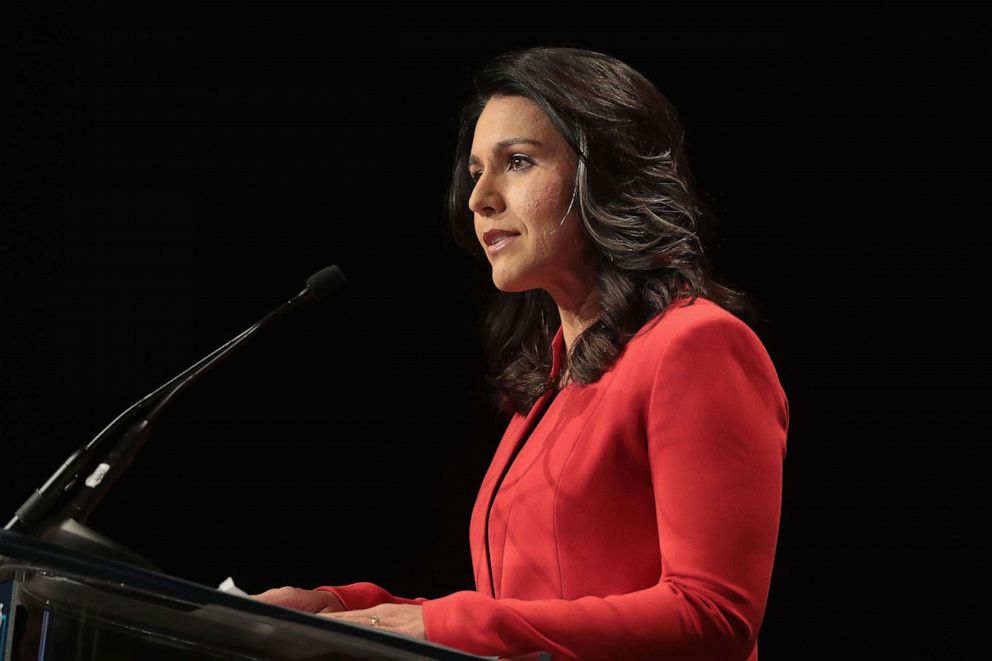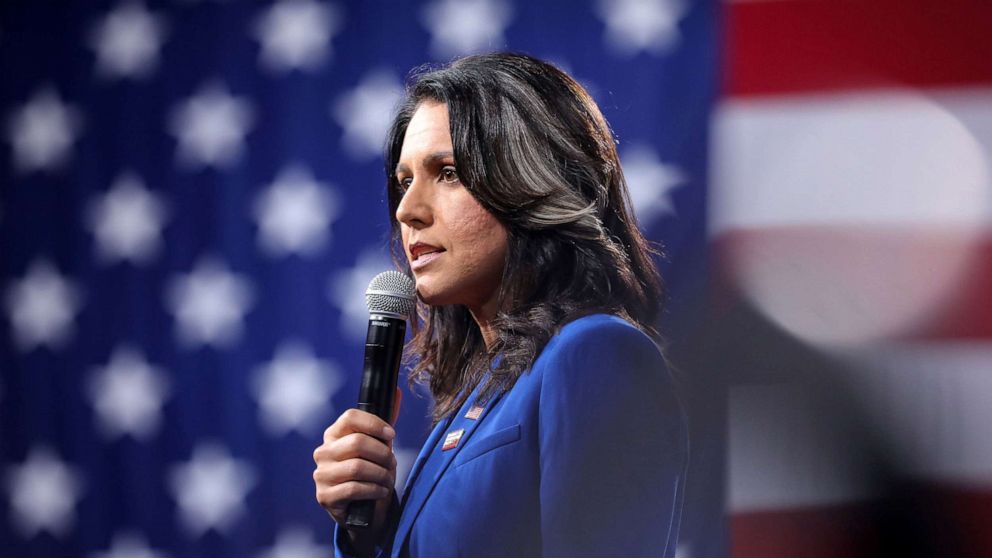Rep. Tulsi Gabbard says she’ll join Democratic debate after threatening to boycott
After Rep. Tulsi Gabbard threatening to boycott Tuesday’s Democratic presidential debate in Ohio, she now says she will be on the stage with her fellow competitors.
“Thank you so much for your support. I just want to let you know that I will be attending the debate. Aloha,” Gabbard said in an email to supporters Monday morning.
Gabbard criticized the Democratic National Committee and corporate media for “rigging” the 2020 election against “the American people” in early voting states in a video she posted on social media last week.
“I am giving serious consideration to boycotting the next debate on October 15th. I will announce my decision within the next few days,” Gabbard said in a video posted on social media Thursday.
Gabbard cited meeting voters in Iowa and New Hampshire who have “expressed to me how frustrated you are that the DNC and corporate media are essentially trying to usurp your role as voters in choosing who our Democratic nominee will be.”

(MORE: Tulsi Gabbard’s campaign wants the DNC to change debate qualifying poll requirements)
Gabbard claimed the DNC and corporate media are trying to replace the roles of voters in early voting states like Iowa, New Hampshire, South Carolina and Nevada, and replace them with polling and “other arbitrary methods which are not transparent or democratic.”
“They're holding so-called debates, which really are not debates at all, but rather commercialized reality television meant to entertain, rather than to inform or enlighten.”
The DNC declined to comment on the matter to ABC News.
This isn’t the first time Gabbard had been critical of the DNC’s debate rules. After failing to make the debate stage in September, her campaign at the time cited what they describe as several irregularities in the selection and timing of the DNC sponsored polls.
According to the criteria that the DNC set forth, 2020 presidential candidates must meet the donor threshold of 130,000 unique donors and 2% in four DNC qualified polls for Tuesday's debate. Gabbard had exceeded the donor threshold for the September debate but needed two polls to meet the debate criteria.
Gabbard’s campaign had exceeded 2% support in over two dozen polls, but only two of the polls she had at the time were among those included on the DNC’s “certified” list. She has been polling among the bottom tier in such certified polls.
In a press release, the campaign said many of the uncertified polls, including those conducted by highly reputable organizations such as The Economist and the Boston Globe, are ranked by Real Clear Politics and FiveThirtyEight as more accurate than some DNC “certified” polls.”
The Hawaii congresswoman, who stepped down as a DNC vice chairwoman to support Sen. Bernie Sanders’ bid in 2016, railed against her party saying, “the 2016 Democratic Primary election was rigged by the DNC and their partners in the corporate media against Bernie Sanders.”
Fellow 2020 candidate Marianne Williamson, who is also polling among the bottom tier of contenders in certified polls, came to Gabbard’s defense saying on Twitter “I have great respect for Tulsi for saying such inconvenient truth. She is absolutely correct.”
Gabbard has been a vocal critic of the DNC’s rules surrounding the debates, calling them out for banning candidates from participating in issue-based debates. Last week in New Hampshire, she said, "If I as a candidate go and participate in one of these debates or forums, that is not sanctioned by the DNC, the DNC says they will ban me from participating in any future DNC debate. That doesn't sound very democratic to me. This was a rule that was implemented in 2016. And it was a major issue that I raised when I was vice chair of the DNC at that time for this very reason."
(MORE: Hawaii Rep. Tulsi Gabbard changes course on impeachment inquiry)
But Gabbard also claimed that she was “looking forward” to using the upcoming debate platform and speak to millions of people and deliver her message.
“It's a challenging setup and dynamic that are on these debates where, you know, you never know exactly how much talk time you'll actually have, and being able to speak out on different issues of importance.”




